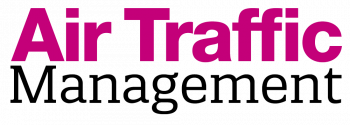Asia-Pacific civil aviation authorities agree on eight areas of priority to facilitate commercialisation of air taxis and implementation of complex drone operations
The first-ever Meeting of Asia-Pacific regulators on Advanced Aircraft Mobility (AAM) and Unmanned Aircraft Systems (UAS), and an accompanying engagement with industry, convened on 9 November 2023 in Singapore. The meeting, initiated by the Civil Aviation Authority of Singapore (CAAS), sought to foster collaboration amongst regulators, and between regulators and industry, to pool expertise and resources and to identify and mitigate risks to leverage AAM and UAS safely and effectively. The inaugural meeting was attended by 17 Asia-Pacific civil aviation authorities (CAAs) and 24 AAM and UAS institutes and companies (see Annex A for details).
With rapid advancements in technology, AAM and UAS are expected to transform the way people work, move and live. Regulators and regulation need to keep pace with technology to reap its full benefits while ensuring security and public and aviation safety.
In the area of AAM, a few CAAs have either certified air taxis or are in the process of doing so. Other CAAs which are not regulators for States of Design are also needing to put in place regulations to be able to subsequently accept them for entry into service as States of Registry, States of the Operator and/or States of the Aerodrome.
In the area of UAS, many countries have already introduced drone operations. Based on a recent survey conducted by CAAS, most of the CAAs in the Asia-Pacific region identified beyond visual line of sight (BVLOS) operations as the area they find most challenging to regulate. They also identified five use cases to focus on – infrastructure inspection, recreational and sports activities, surveillance and security, delivery and logistics, and aerial photography and videography – where CAAs could benefit from the sharing of approaches and technical requirements to build capability.
In response to these developments and in anticipation of future needs, CAAS initiated the Meeting of Asia-Pacific Regulators on AAM and UAS to: a) raise awareness of new technologies and regulatory approaches and practices; b) facilitate alignment on regulatory approaches and practices; and c) support adoption of policies and regulations.
At the inaugural meeting, chaired by CAAS Director-General, Mr Han Kok Juan, the Asia-Pacific CAAs identified eight areas of priority and set up workstreams comprising various CAAs to work on each of these areas (see Annex B for details). The CAAs will develop a set of reference materials which regulators can consider, adapt, and use to facilitate the commercial operations of AAM and implementation of complex UAS operations which will be ready in 2025.
Alongside the Regulators Meeting, CAAS also convened the Regulators-Industry Engagement Meeting for CAAs from across the region to share their regulatory approaches and to engage private sector institutes and companies on their plans (see Annex C for DG CAAS’ opening remarks at the Engagement Meeting).
Mr Han Kok Juan, Director-General of CAAS, said: “CAAS is honoured to initiate and host a new platform for regulators to meet on AAM and UAS and to engage industry. We hope to foster greater collaboration amongst regulators and with industry to co-design and co-develop rules that would better meet our twin objectives of leveraging technology and ensuring security and public and aviation safety. Such collaboration will also help us streamline and align regulatory processes, speed up approval and adoption across States and support public education and outreach.”
